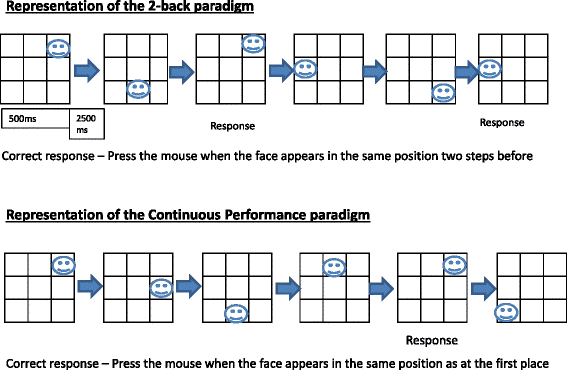Would transcranial direct current stimulation (tDCS) enhance the effects of working memory training in older adults with mild neurocognitive disorder due to Alzheimer's disease: study protocol for a randomized controlled trial
- PMID: 26499250
- PMCID: PMC4619532
- DOI: 10.1186/s13063-015-0999-0
Would transcranial direct current stimulation (tDCS) enhance the effects of working memory training in older adults with mild neurocognitive disorder due to Alzheimer's disease: study protocol for a randomized controlled trial
Abstract
Background: There has been longstanding interesting in cognitive training for older adults with cognitive impairment. In this study, we will investigate the effects of working memory training, and explore augmentation strategies that could possibly consolidate the effects in older adults with mild neurocognitive disorder. Transcranial direct current stimulation (tDCS) has been demonstrated to affect the neuronal excitability and reported to enhance memory performance. As tDCS may also modulate cognitive function through changes in neuroplastic response, it would be adopted as an augmentation strategy for working memory training in the present study.
Methods/design: This is a 4-week intervention double-blind randomized controlled trial (RCT) of tDCS. Chinese older adults (aged 60 to 90 years) with mild neurocognitive disorder due to Alzheimer's disease (DSM-5 criteria) would be randomized into a 4-week intervention of either tDCS-working memory (DCS-WM), tDCS-control cognitive training (DCS-CC), and sham tDCS-working memory (WM-CD) groups. The primary outcome would be working memory test - the n-back task performance and the Chinese version of the Alzheimer's Disease Assessment Scale - Cognitive Subscale (ADAS-Cog). Secondary outcomes would be test performance of specific cognitive domains and mood. Intention-to-treat analysis would be carried out. Changes of efficacy indicators with time and intervention would be tested with mixed effect models.
Discussion: This study adopts the theory of neuroplasticity to evaluate the potential cognitive benefits of non-invasive electrical brain stimulation, working memory training and dual stimulation in older adults at risk of cognitive decline. It would also examine the tolerability, program adherence and adverse effects of this novel intervention. Information would be helpful for further research of dementia prevention studies.
Trial registration: ChiCTR-TRC- 14005036 Date of registration: 31 July 2014.
Figures
References
-
- Prince M, Jackson J, editors. World Alzheimer Report 2009. London: Alzheimer’s Disease International; 2009.
-
- World Health Organization and Alzheimer’s Disease International . Dementia: a public health priority, World Health Organization. 2012.
Publication types
MeSH terms
Associated data
LinkOut - more resources
Full Text Sources
Other Literature Sources
Medical
Research Materials


